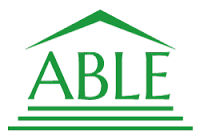FIVE Financial Moves for Fall
Summer is winding down and fall is the time to implement financial plans for this and next year.
1. It’s open enrollment time!
 Open enrollment, the time to enroll or make changes to your health care plan, happens in the fall. Here are a few things to review based upon your personal circumstances.
Open enrollment, the time to enroll or make changes to your health care plan, happens in the fall. Here are a few things to review based upon your personal circumstances.
While you’re working:
Employer provided insurance-
- Do you have any changes that would impact your coverage? Getting married or divorced, having a baby, new diagnosis?
- Are you utilizing a Flexible spending account (FSA)? You may elect for up to $3200 (2024) a year of your pre-tax income to be placed in an FSA account. This account may be used to pay for your out-of-pocket health care expenses. Read more about FSAs.
Are you self-employed? Check out your options on the Health Insurance Marketplace. Read more.
Health Savings Account (HSA). If you have a High Deductible Health Plan (HDHP) your plan may qualify you to have an HSA. An HSA allows you to set aside pre-tax earnings, reducing your taxable income, to apply for qualified expenses with no tax implications or penalties. Unlike the FSA, the balance in an HSA does not need to be spent down. In this manner, an HSA may function as a DeFacto retirement savings account, similar to a 401K, as once you are 65, you may withdraw funds for any reason and the withdrawal amount will be treated as taxable income. To read more, begin here.
Retired and on Medicare:
After your initial enrollment in Medicare, you may change your prescription drug plan (Part D) or your Medicare Advantage plan (Part C) during the open enrollment period- October 15 - December 7. Source: https://www.medicare.gov/basics/get-started-with-medicare/get-more-coverage/joining-a-plan
2. Max out your 401(K), maybe.
 For 2023, you are able to contribute $22,500. from your salary to a 401K account and an additional $7,500. catch up contribution if you are over the age of 50. Saving in a 401(K) allows your pre-tax money to grow over time with no taxes due until funds are withdrawn. Your taxable income in the year you contribute will be lower and you will have the benefit of tax-free compounding of the money over the life of the account. A Roth 401K will have after tax contributions but no taxes due when funds are withdrawn.
For 2023, you are able to contribute $22,500. from your salary to a 401K account and an additional $7,500. catch up contribution if you are over the age of 50. Saving in a 401(K) allows your pre-tax money to grow over time with no taxes due until funds are withdrawn. Your taxable income in the year you contribute will be lower and you will have the benefit of tax-free compounding of the money over the life of the account. A Roth 401K will have after tax contributions but no taxes due when funds are withdrawn.
Should you max out your 401K? The answer depends on your personal circumstances. While saving for retirement is a priority for everyone, before maxing out your 401K be sure you have sufficient income/cash flow to set aside savings for a long period of time. For example, you may want to think through your 401K contribution amount if you carry credit card debt that you do not have the cash on hand to pay down. The additional money from your salary might be better used to pay off this expensive debt rather than save.
That said, contributing to your 401K is a great move for your long-term financial health. Many employers will match your contributions up to a certain limit and if possible, you should aim to contribute at least that amount to your plan.
3. Gifting
Annual gift exclusion.
 Gifting is both an expression of your personal generosity and a valuable estate planning tool. The annual gift exclusion, the amount that may be gifted to an individual with no gift tax, is $17,000 ($34,000 for married couples) for 2023. As an example, you may each gift each of your children or grandchildren up to $17,000 this year, and the annual exclusion applies to each gift.
Gifting is both an expression of your personal generosity and a valuable estate planning tool. The annual gift exclusion, the amount that may be gifted to an individual with no gift tax, is $17,000 ($34,000 for married couples) for 2023. As an example, you may each gift each of your children or grandchildren up to $17,000 this year, and the annual exclusion applies to each gift.
Gifting for Education – 529 plans
New 529-plan-to-Roth-IRA rule in 2024
Beginning in 2024, unused college savings in a 529 plan account may be transferred to a beneficiary's retirement savings without taxes or penalties (limits apply). This provision of the Secure Act 2.0 gives families a new option for funds remaining in a 529 account, in addition to the existing choices of taking a taxable distribution, using funds to pay off up to $10,000 of qualified student loans for the beneficiary or their siblings, or naming a family member(s) as the beneficiary(s). Read more about the new rule in The Journal of Accountancy.
Superfunding a 529 plan account.
In addition to being able to gift $17,000/year to a 529 college savings fund for each beneficiary, 529 plans allow you to gift up to 5 years of contributions at once; this year $85,000/donor or $170,000/couple.
There are benefits and caveats when considering a lump sum gift. A lump sum gift allows the five years’ worth of contributions to grow tax-free over the entire period, a wonderful benefit to the account beneficiary and also allows the donor(s) to accelerate distributions to reduce their estate. However, no additional gifts may be made until 5 years have passed, even if you have not contributed the full allowable amount. Read more ab0ut gifting to a 529 account.
Gifting to an individual with a disability- Consider an ABLE 529(A) account contribution.
 A gift or inheritance given directly to a person with special needs might disqualify them from receiving important government benefits. An ABLE account is a tax-advantaged account that allows the owner to utilize funds for qualified expenses and save money without impacting eligibility for government benefits such as SSI and Medicaid. Keep in mind that qualifying individuals may only have one ABLE account with a maximum annual contribution amount of $17,000 (2023) from all sources, with exceptions if they are gainfully employed. Read more about the ABLE account.
A gift or inheritance given directly to a person with special needs might disqualify them from receiving important government benefits. An ABLE account is a tax-advantaged account that allows the owner to utilize funds for qualified expenses and save money without impacting eligibility for government benefits such as SSI and Medicaid. Keep in mind that qualifying individuals may only have one ABLE account with a maximum annual contribution amount of $17,000 (2023) from all sources, with exceptions if they are gainfully employed. Read more about the ABLE account.
4. Planning for year-end
Charitable contributions.
 Fall is a good time to track and think through your philanthropic giving to qualified charities for 2023. Whether gifting in cash, appreciated securities or the fair value of other assets, time ticks down quickly and year end is approaching!
Fall is a good time to track and think through your philanthropic giving to qualified charities for 2023. Whether gifting in cash, appreciated securities or the fair value of other assets, time ticks down quickly and year end is approaching!
Holiday and travel.
Spending for gifts, entertainment and travel is generally elevated at holiday time. You may want to set aside funds now to be used for celebrating in style.
5. Homeowner's Insurance
Review your coverage.
Home values have increased dramatically over the past several years and this, coupled with inflation and supply chain woes, means that the replacement cost of your home has most probably increased significantly. In addition, rates on homeowner’s insurance have also gone up. While it is painful to focus on higher costs, it is key to protect the investment you have in your home by having adequate insurance. Now may be an opportune time to both review your coverage and shop around to compare coverage and prices.
And don’t forget your Umbrella!
.jpg?width=588&height=257&name=pexels-henry-%26-co-1176397%20(2).jpg) Many years ago, million-dollar lawsuits were considered excessive and having a million-dollar umbrella insurance policy was considered adequate. With inflation of both property values and people’s salaries, the million-dollar coverage in many cases may not be adequate. It would be prudent to discuss increasing your liability insurance with your insurance agent.
Many years ago, million-dollar lawsuits were considered excessive and having a million-dollar umbrella insurance policy was considered adequate. With inflation of both property values and people’s salaries, the million-dollar coverage in many cases may not be adequate. It would be prudent to discuss increasing your liability insurance with your insurance agent.
Keep us informed!
Always, always - Know that if there are meaningful changes in your life circumstances, it usually has an impact on your financial situation. Planning a large purchase, a change in your family, residence, or employment … be sure to talk with us!
This material is for informational purposes only and is not intended to serve as a substitute for personalized investment advice or as a recommendation or solicitation of any particular security, strategy or investment product. Diversification cannot assure profit or guarantee against loss. There is no guarantee that any investment will achieve its objectives, generate positive returns, or avoid losses. Sequoia Financial Advisors, LLC., DBA Special Needs Financial Planning makes no representations or warranties with respect to the accuracy, reliability, or utility of information obtained from third-parties. Certain assumptions may have been made by these sources in compiling such information, and changes to assumptions may have material impact on the information presented in these materials.
Sequoia Financial Advisors, LLC., DBA Special Needs Financial Planning does not provide tax or legal
advice. Investment advisory services offered by Sequoia Financial Advisors, LLC., DBA Special Needs Financial Planning. Registration as an investment advisor does not imply a certain level of skill or training.

